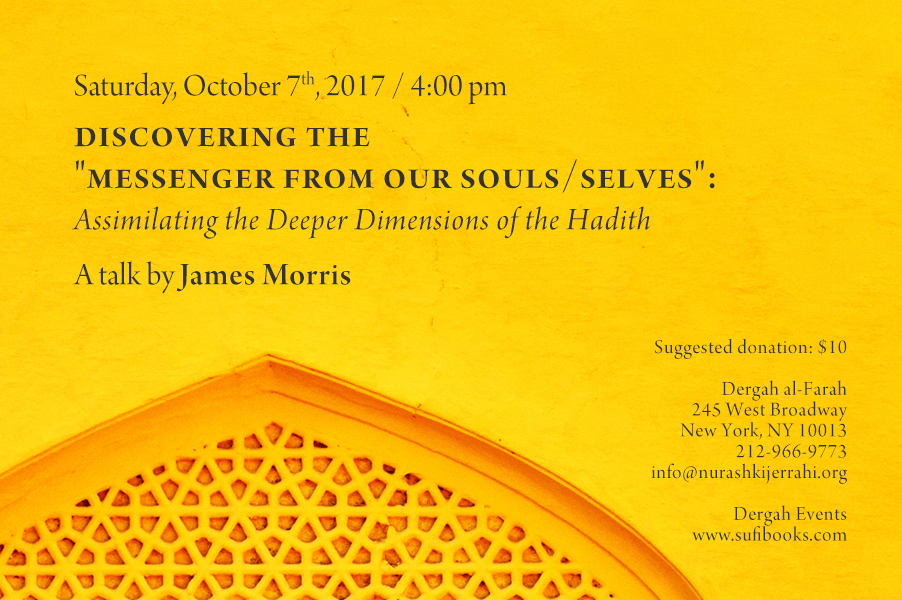It is well known that both the classical poetic and spiritual expressions of the Islamic humanities (including the vernacular masterpieces of Sufi poetry and spiritual pedagogy across the Muslim world) and the learned Arabic intellectual and spiritual traditions of Islamic thought are alike deeply rooted in contemplation, practice, and ongoing reflection on the immense corpus of Prophetic sayings and teachings that were recorded in the early centuries of the Islamic era. Yet today Muslims and non-Muslims alike often tend to imagine the hadith as somehow limited to their most mundane–and often problematic–uses by jurists, political ideologues, and the like.
Since we are just entering a period when more and more hadith are increasingly available in English, this short talk will begin by introducing a few basic considerations that can help anyone (I.e., without any specialized background) to begin to appreciate the deeper spiritual dimensions of a wide range of translated hadith. Then we will turn to discussion and questions regarding a representative sample of a few very practical hadith on adab, or spiritually appropriate attitudes and behavior.
Professor James Morris (Boston College) has taught Islamic and comparative religious studies at the Universities of Exeter, Princeton, Oberlin, and the Sorbonne, and lectures widely on Sufism, the Islamic humanities, Islamic philosophy, the Qur’an, and Shiite thought. Recent books include Ostad Elahi’s Knowing the Spirit (2007); The Reflective Heart: Discovering Spiritual Intelligence in Ibn ‘Arabi’s ‘Meccan Illuminations’ (2005); Orientations: Islamic Thought in a World Civilisation (2004); and Ibn ‘Arabi’s The Meccan Revelations (Pir Press, 2003).
